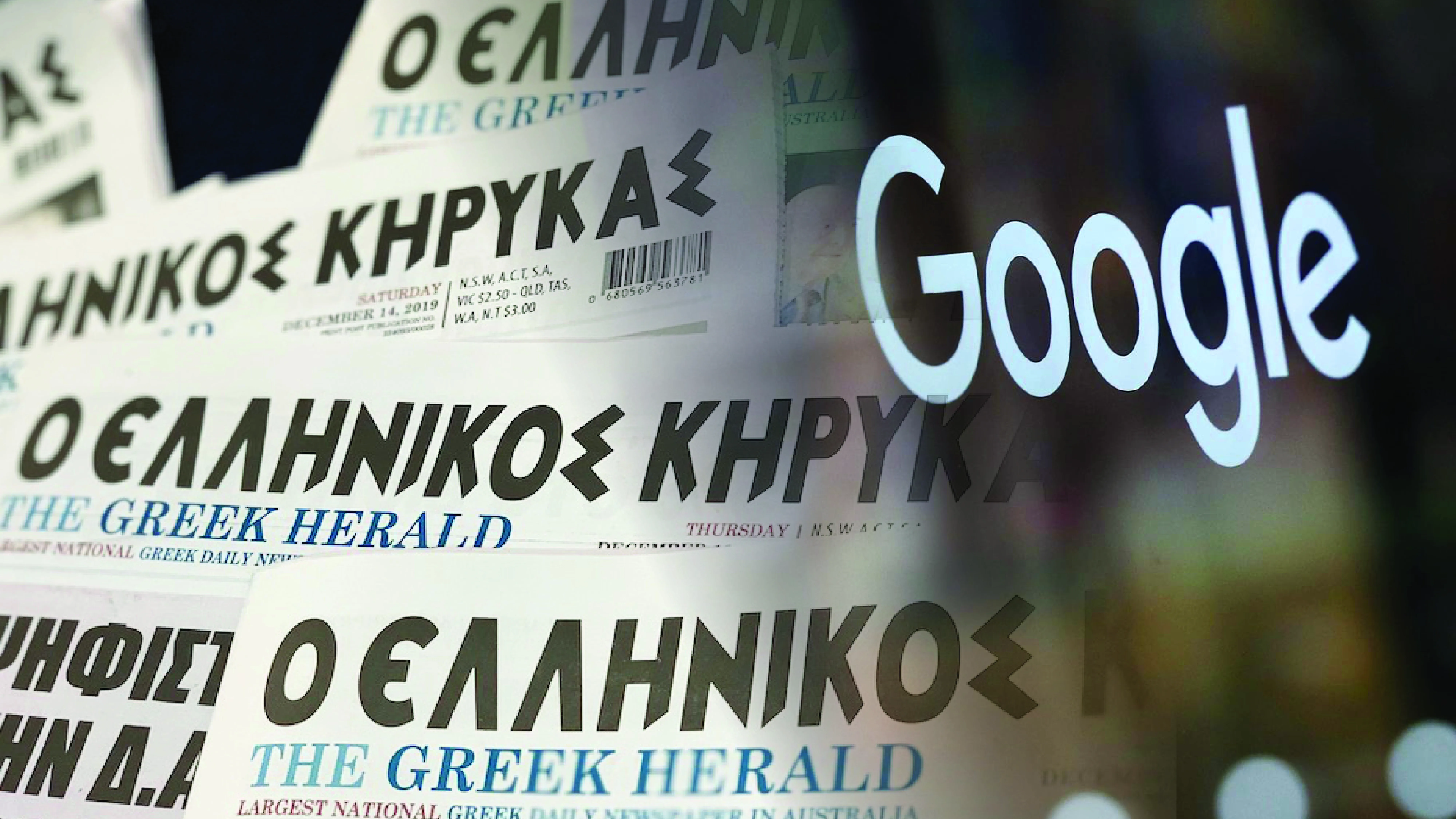A group of multicultural and independent Australian publishers — including The Greek Herald — has been left in limbo after Google opted to end a key funding deal two years early.
The arrangement, first established in 2022 and due to run until 2027, was negotiated by the Minderoo Foundation through the Public Interest Publishers Alliance (PIPA), a coalition of smaller news organisations. It provided funding support to more than 20 publishers, including Indian Link, The Australian Jewish News and Time Out.
Google informed participating outlets last month it would withdraw from the agreement by July this year. In a letter to the publishers, the tech company cited a need to streamline how it distributes support and reduce the administrative burden on participants. It now plans to explore a centralised model using a third-party distributor to allocate funding.
“Feedback received from publishers indicates that the program required significant team resources to complete required submissions, reports and financial processes,” a Google representative said in the letter.
“In line with this change to a centralised distribution model we will be discontinuing individual publisher agreements negotiated through the Minderoo Foundation.”
Minderoo is reportedly working behind the scenes to re-engage Google and restore funding discussions. However, many publishers say they planned budgets and operations around a long-term agreement and now face significant financial uncertainty.

Dimitra Skalkos, Publisher of The Greek Herald, said: “This decision by Google to prematurely terminate its agreement places significant strain on independent publishers like The Greek Herald, who have planned and forecasted on the basis of the original five-year commitment.”
“This is more than just a funding cut — it’s a profound step backwards for media equity in Australia,” Ms Skalkos added.
“We understand Minderoo is actively working to reopen discussions, and we remain hopeful that Google will reconsider its position or collaborate on a sustainable solution that upholds the intent of the original agreement.”
Ms Skalkos called on the Federal Government to act now before it’s too late.
“We urge the Albanese Government to respond with urgency and demonstrate that it values a media landscape that includes all voices — not just the dominant ones. Without real and enforceable support, we risk losing the very platforms that hold our communities together, especially in times of crisis, change, and cultural significance,” she said.
The Federal Government introduced the News Media Bargaining Code in 2021 to ensure digital platforms fairly compensate news outlets for their content. Both Meta and Google entered into deals with publishers to avoid designation under the code, with more than $600 million distributed across the media sector over three years.
While some of Google’s deals were structured as three- or five-year agreements, others became rolling one-year contracts, making them more vulnerable to withdrawal.
Now, with Meta refusing to renew its deals and Google cancelling the PIPA deal early, many fear the most vulnerable parts of the media sector could be left behind, with questions raised about the long-term stability of funding for smaller, independent outlets.
Although the Albanese government has proposed a new “news bargaining incentive” — a policy that would compel platforms to negotiate or face penalties — progress has stalled. A promised discussion paper has yet to materialise, and smaller outlets say time is running out.
One PIPA source familiar with the issue remarked: “If this doesn’t spark concern in Canberra, it sends the wrong message — that the Morrison government was more supportive of public interest journalism than Labor. These outlets represent critical community voices, and they deserve more than silence.”
